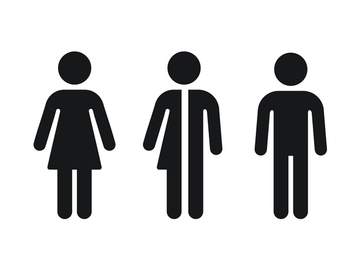What to KnowSex is often the preferred term when referring to biology (for instance, “in many species, members of the male sex are larger than those of the female sex”), while gender is the preferred word when referring to behavioral, cultural, and psychological traits typically associated with sex (for instance, “young people more likely to challenge the gender norms they grew up with.”)

Are gender and sex the same? Yes, and no. There are some circumstances where you may be better served by using one of these two words, and there are some cases where it does not much matter which one you choose.
When you probably want to use the word ‘sex’
When you are referring to biology sex is usually the preferred word, especially when writing in a technical style. The sense of sex we are referring to here is the label (male or female) one is assigned at birth, based on such factors as chromosomes, genitals, and hormones. Here are some examples:
Sex differences accounted for some of the results in the survey.
The scientists determined the sex of each bird before beginning the study.
When you probably want to use the word ‘gender’
When you are referring to the behavioral, cultural, or psychological traits typically associated with one sex, gender is usually the preferred word. Here are some examples:
People who are questioning their gender may identify as nonbinary.
Gender identity refers to a person's internal sense of being male, female, some combination of these, or neither male or female.
When you’re probably fine with using either word
Gender is interchangeable with sex when used to mean “either of the two major forms of individuals that occur in many species and that are distinguished respectively as female or male especially on the basis of their reproductive organs and structures.” This is especially true in nontechnical use. Here are some examples where one might use either word:
My grandmother told us that when she was young her school kept the sexes/genders separated in gym class.
The form had a box asking us to indicate what gender/sex we were.
Gender and sex have both been in use for hundreds of years, and each word has specific meanings that it does not share with the other. For example, “Many religions frown on having gender outside of marriage” does not work as a sentence. Gender has a grammatical meaning (“one of the categories (masculine, feminine, and neuter) into which words are divided in many languages”) that is not shared by sex; it would not make much sense to say “Some languages do not use sexes.”
It is important to note that the status of both words is complicated, and that the meanings of each are still somewhat fluid. If you are concerned about choosing the correct one, we recommend using sex for more physical uses, and gender for more cultural or psychological ones.




